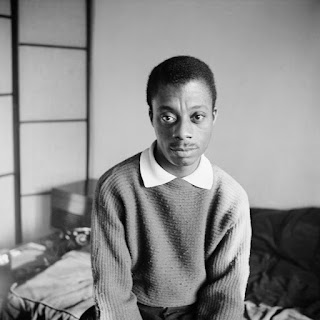The Intrepid Voice of Civil Rights: James Baldwin: 1924-1987
"All art is a kind of confession" (Gates, et al.).
James Baldwin was born in Harlem, New York, in 1924 at the height of the Harlem Renaissance. Religion had come with many African Americans from the Deep South into storefront churches along the main drags of Harlem. Born to an unmarried mother, however, James had a troubled childhood that was defined by poverty and want. When his mother married, it was David Baldwin, a lay preacher, who expounded on a gospel of a jealous and angry god. Though the boy did have a run at street preaching in his youth, he would ultimately renounce Christianity and find peace in books. The library was a quiet respite for the child whose home life had become chaotic.
The time he spent with books in his youth would pay off, as he began a promising career as a teen. He wrote for a church newsletter, as well as for his school. He would later establish relationships with such notable figures as Countee Cullen and Richard Wright, who would help curate the young man's career as a published author.
"Shackled to Myths"
As Baldwin matured as a writer, he found that it was his essays, not his novels, where he found most freedom of expression. His novels, including his first, Go Tell it on the Mountain received praise, and Baldwin met the demand in a succession of publications to follow. None of the novels he had written fared as well as his essays. Especially those collected in Notes from a Native Son, Baldwin's fiery passion would rise to be called the "the conscience of the nation" (392).
It was Baldwin's own unwavering passion and self-assertion that would damage his relationship with Richard Wright. Baldwin's scathing criticism of the protest novel--the very genre Wright championed--was what eroded that mentoring relationship. For his own reasons, James Baldwin left the country soon after, spending his time in Paris.
By the time he returned to the U.S. in 1957, the Civil Rights struggle had compelled him to get involved. Reporting on school segregation in the South, Baldwin soon lent his literary talents to recording the events--and the relationships--that would shape the Civil Rights Movement of the 1960s. He was active in CORE (Congress for Racial Equality) and SNCC (Student Non-Violent Coordinating Committee).
What might startle the casual viewer (or listener) of Baldwin's rhetoric is the surprising laser accuracy with which Baldwin disarms his opponents. The efficiency with which he exposes the inconsistencies, the anxieties, and the insecurities that lay beneath racism, often leaves his listener in mild shock. Baldwin could be particularly uncompromising as it applied to patrician white culture and its traditional attitudes toward sexuality and morality. Baldwin shrewdly asserts that the white man needs the black man as subordinate to project onto him all of the white's insecurities. In similar fashion, Baldwin is quoted in our text as saying that the "homosexual" is "created as outcast to shore up an enfeebled masculine identity." That in fact, "Macho men need 'faggots' whom they have created 'in order to act out a sexual fantasy on the body of another man and not take any responsibility for it" (392). Undeniably, Baldwin had an uncanny ability to deconstruct the myths America has perpetuated, despite the feebleness, shallowness, and hypocrisy of such myths.
Perhaps the most impressive example of James Baldwin's rhetorical power is demonstrated through his debate with William F. Buckley at Cambridge University, in the UK in 1965. Buckley was a staunchly conservative intellectual, debater, author, founder of The National Review and host of the program, Firing Line. The topic of the debate was "whether the American Dream had been achieved at the expense of African Americans" (1).
According to the editors of our text, The Norton Anthology of African American Literature, though Baldwin renounced Christianity, it was the rhetoric of Old Testament sermonizing, and the themes of sin, redemption, absolution that shaped his own rhetorical style. Dr. Gates, et al. report that "the lyrics of the spirituals, blues, and gospel, [create] a prose that demands the reader's attentive ear as much as eye, for the pace, cadences, rhythms...often lost to print" (Gates, et al. 391). In this debate with Buckley, one hears the force of the pulpit through the voice of James Baldwin. The force, the passion from this man for whom words and language were his instruments. With stealth, grace, and enviable poise, he meets the challenges and barbs of Buckley's narrow views and triumphs.




Comments
Post a Comment